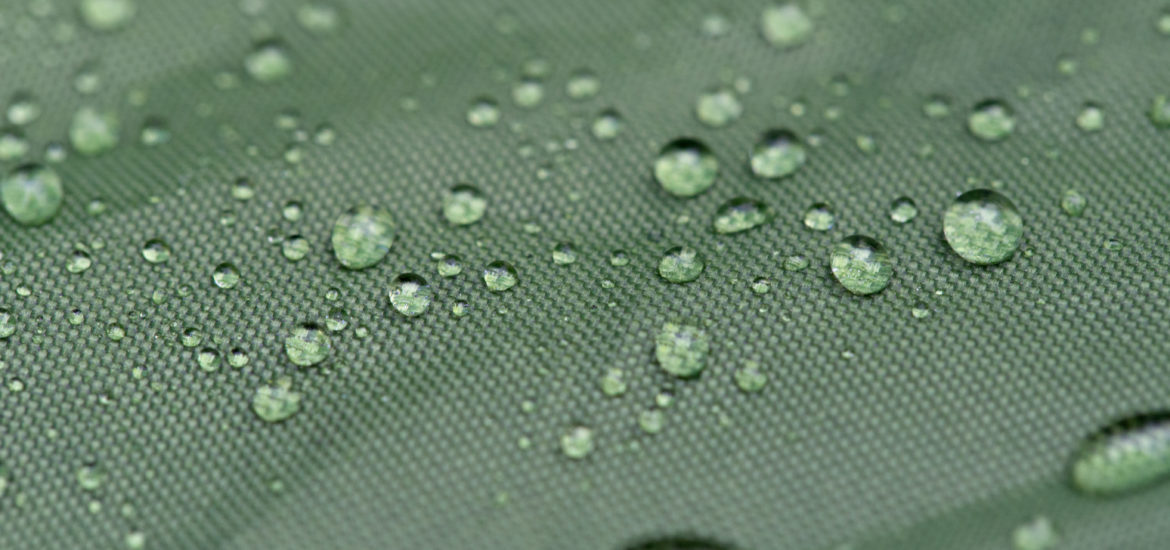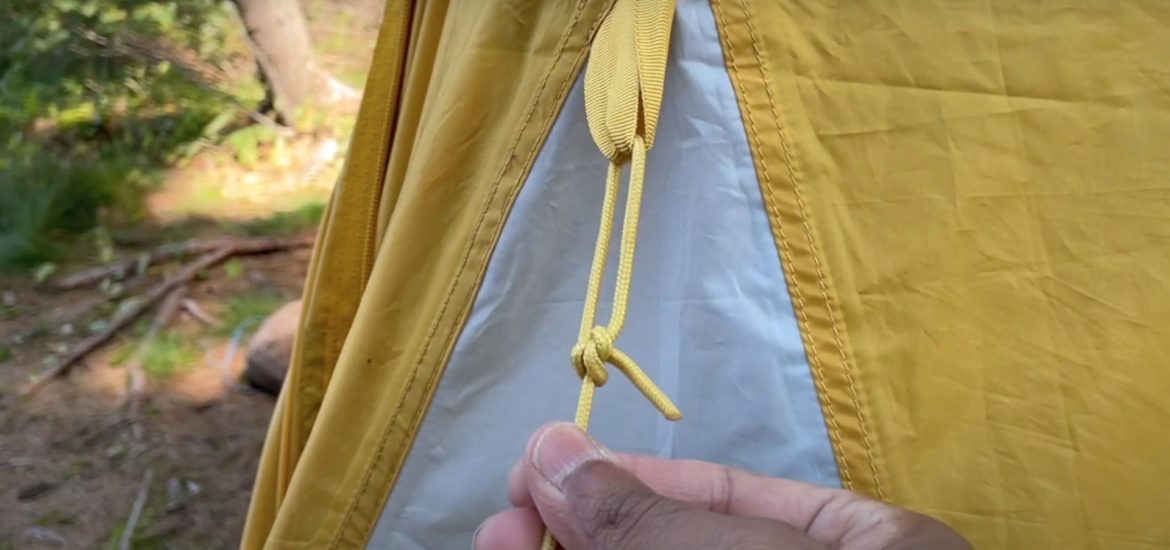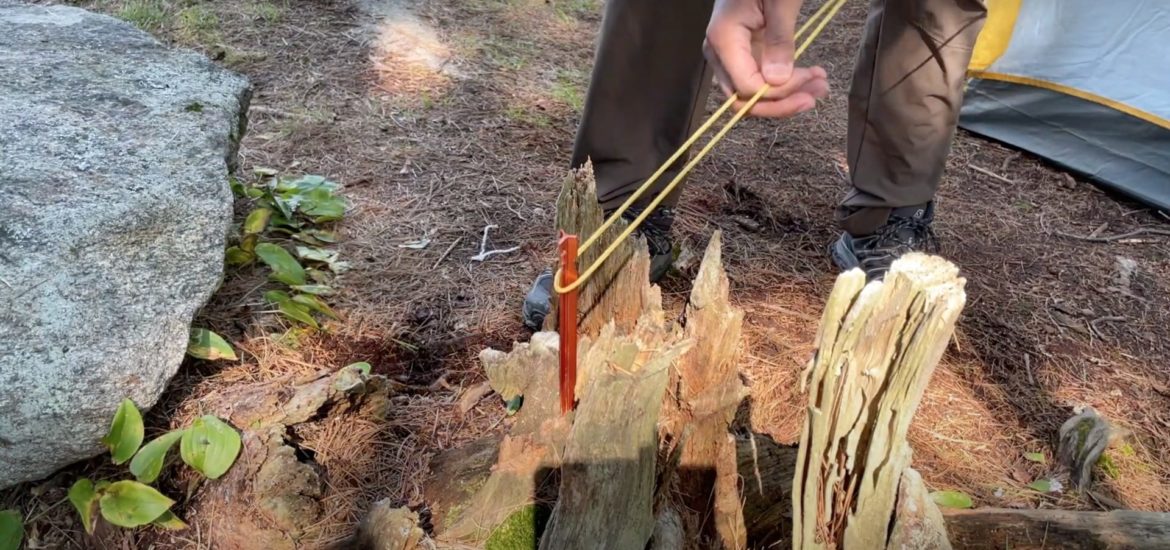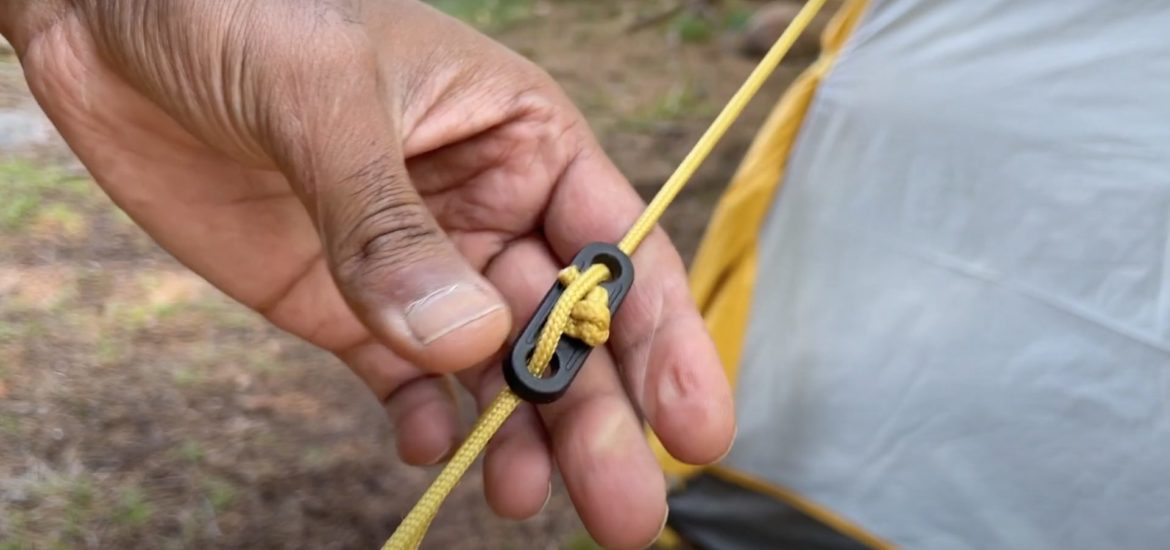An often under-utilized aspect of pitching a tent is the use of guy lines. Many campers don't seem to ready guy lines properly, and others practise not use them all-together.
But, why are tent guy lines important, and how do you properly fix up tent guy lines?
Article Contents:
- Why are Tent Guy Lines Important?
- Step-by-Step Tent Guy Line Prepare Up
- Replacement Guy Lines, Tensioners & Stakes
Almost tents are manufactured with guy-out or necktie-off points congenital into the tent frame or tent fly. These guy-out points are typically located mid-way up the side of a tent or nigh the top.
They are strategically located around a tent and are important for 3 central reasons.
Typically, a tent base includes grommets or loops to stake into the ground. This keeps the tent firmly anchored downwards and prevents it from shifting while people are inside or during windy conditions.
In some instances, these tent base anchor points aren't good enough at keeping your tent secure, especially in extremely windy atmospheric condition.
Using tent guy lines and staking them into the ground increases a tent's stability and improve anchors it to the ground in harsh conditions.
Each boosted anchor point helps to secure the tent so that it can weather current of air gusts without getting diddled away.
Tents are usually designed and shaped to prevent rain water and snow from accumulating on the cloth. However, during intense storms, a tent can hands become overwhelmed with the amount of rainfall, snow or water ice loads.
A tent rainfly can start to sag, which reduces its ability to aqueduct and deflect atmospheric precipitation away from the tent torso. And overtime, water may start to penetrate into these areas, or the snow load might get too high and collapse into the tent.
- Guy lines are meant to add tension and rigidity to a tent and tent fly
- Guy lines pull the tent fabric taught so that a tent tin more than easily shed water or snow from the textile
Personally, I've found using tent guy lines eliminates any pooling of water on my tent, particularly during heavy rain periods. I tin can see a stark difference between how dry out my tent is with and without guy lines being used.
And so, if I know precipitation is in the forecast, I brand sure to utilize all my tent guy lines to keep my tent shaped perfectly to shed water.
Usually, when you prepare up a tent, the cloth isn't super taut. There tin can exist areas where the tent torso sags inward which tin reduce the overall interior infinite.
Well, tent guy lines are designed to "pull the tent open" and helps to maximize the tent interior volume.
Even if it's a couple of inches larger, the added interior book can make a huge divergence. Information technology can mean campers won't have the tent walls direct in their confront when they sleep. Information technology can also give you a little more than room to maneuver, especially with loads of gear and other people inside.
Pro-tip: For tents where the textile is loose or the frame is weak, using guy lines drastically improves the shape and tin restore an "old" tent back to its former glory!
Almost of the time, a tent comes with guy lines installed, but if your tent doesn't come with guy lines pre-installed, you'll have to attach them yourself first.
If it doesn't come up with guy lines, y'all can easily order reflective guy line and line tensioners online. Then, cut and attach them to each guy out point.
Brand sure there is enough length to reach the ground from the tent guy out betoken, plus l% actress. This is to ensure you accept enough dorsum-length to tighten the line.
Attach the loop end of the guy line to a ground stake. Hammer the ground stake into the ground while ensuring the following:
- The stake should be angled slightly abroad from the tent to ensure information technology doesn't get pulled out in windy weather condition
- The stake should be positioned away from your tent base to create a 45-caste angle between the guy line and the ground
Repeat this process for all guy lines around your tent.
Pro-tip :Feel gratis to apply the natural environment to anchor guy lines. Exposed roots and big rocks make bully anchor points, particularly when the ground is too hard for stakes.
Using the line tensioner, systematically tighten each guy line around your tent. You lot want each line to be business firm but not overly tightened.
An overly tightened guy line can impart as well much stress onto your tent, which might cause damage.
Taut guy lines help a tent to shed rain and snowfall and so you won't have to constantly shake your tent to remove congenital upward water, snow or ice.
Pro-tip: Guy lines tend to loosen over fourth dimension. And so, throughout the duration of your camping trip, recollect to check the tension on each guy line and tighten as required.
As mentioned, most tents come up with guy lines and tensioners included in the box or attached to the tent body, as well as ground stakes.
However, if they do not, or if you need to replace your tent guy lines, I'd recommend purchasing guy lines with built-in cogitating strips.
That's because tripping over guy lines at night is a huge problem, and can exist a serious condom concern especially in precarious camping ground spots such as tall, ridge, or cliff-edge locations.
Guy Line
I recommend 65 feet (20 meters) ofi.viii mm reflective parachord rope. This rope can be cut into smaller lengths for each guy out point.
Rope Tensioners
Depending on the number of guy lines, you lot'll also need to get rope tensioners. I recommend aluminum rope tensioners because they are small, calorie-free-weight, and volition last a lifetime.
Ground Stakes
Finally, if y'all don't have any extra stakes, I recommend purchasing heavy duty stakes to ensure the guy lines are deeply anchored to the ground.
This article contains chapter links, which help support this blog at no cost to you!

How To Set Up Guy Lines,
Source: https://meanderingspirits.com/blog/travel/how-to-properly-set-up-and-use-tent-guy-lines/
Posted by: reeveshishattly38.blogspot.com









0 Response to "How To Set Up Guy Lines"
Post a Comment